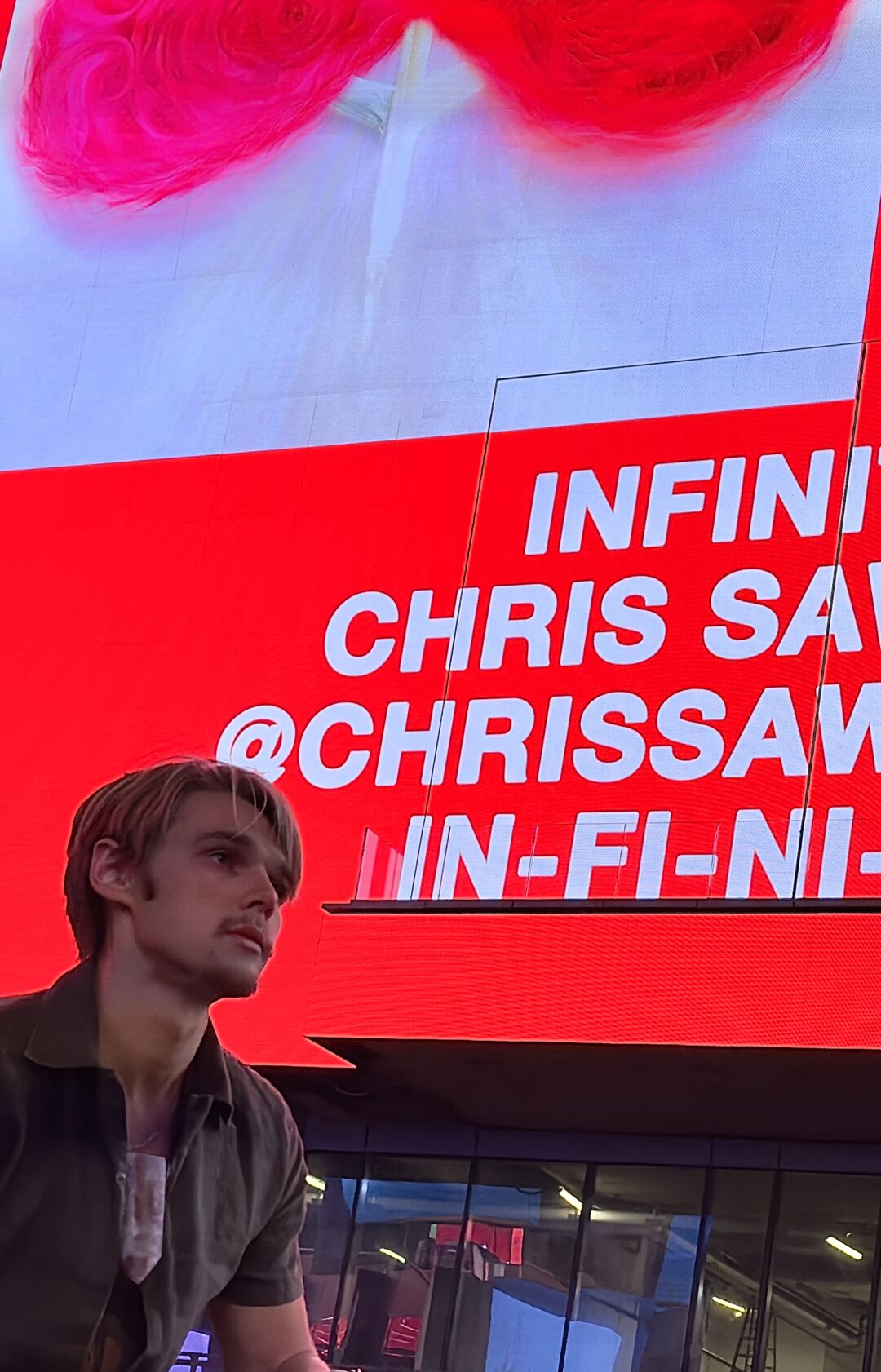Eleftherios has taken Runaway, one of Kanye West’s most emotionally unfiltered tracks, and reshaped it into something weightless and introspective. In this interview, he breaks down the creative decisions behind his atmospheric rework, explaining how he preserved the raw underpinnings of the song while steering it into a more meditative space. He also reflects on the unexpected viral success of Hide CS01, the fine line between artistic instinct and strategic thinking in today’s music landscape, and his ambitions beyond streaming success—including a move to Greece and aspirations to compose for film and games. Whether you’re fascinated by the details of ambient production or the evolving role of TikTok in modern music, Eleftherios offers plenty to unpack.
Eleftherios, welcome to A&R Factory! You’ve carved out a space in ambient music that’s clearly connecting with people in a big way, and your upcoming take on Runaway looks set to do the same. Runaway is already a pretty haunting track. What made you want to break it down even further and reimagine it as an ambient piece?
It’s a pleasure to be here at A&R Factory, thank you for having me on this incredible platform for artists! I really appreciate the kind words. I’m honestly not too sure about modern Kanye, but you can’t deny that, in the past, he created some truly culture-shifting records. Runaway is one of my favourites. The minimalism of the piano, so simple yet incredibly iconic—paired with the raw emotion of the song makes it deeply moving. I felt it could translate beautifully into the ambient space, allowing the melody and emotion to breathe in a new way.
Kanye West’s Runaway is such an unfiltered song, essentially Kanye being brutally honest about his own flaws, toxicity, and inability to navigate relationships. At its core, it’s raw and vulnerable. I wanted to take that same rawness and explore it through a more hopeful, ethereal lens.
When you take a song like Runaway and strip it back, how do you decide what stays and what goes? Were there any parts of the original that surprised you once you isolated them?
That’s a great question. The biggest change was in the structure. The original is almost nine minutes long, while my version is just over two minutes. It’s like adapting a novel into a film, you can’t include everything, so you have to choose the most essential moments.
I knew I had to keep the most iconic melodic lines, especially the vocal melody, and finding a way to make that work naturally in an ambient setting was a challenge. Reverb became my best friend (as always) in shaping the atmosphere and blending everything seamlessly.
What surprised me most was just how powerful the melody is on its own. Even without vocals, without drums, without all the production, it could easily be the soundtrack to an emotional indie film where someone stares out of a rain-soaked window, contemplating life…
Hide CS01 blew up on TikTok in a huge way. Did that change the way you think about making music, or do you just focus on what feels right in the moment?
Oh, 100%, it changed how I think about music. Before Hide, I was making songs purely based on feeling. Now, I still focus on emotion, but I also think, “Could this fit into a moment people might want to soundtrack!?” With Hide, it all felt very natural. I saw the dark fantasy trend taking off on TikTok and thought, this track would sound incredible in an ethereal ambient style! I made it in a day, got my girlfriend GLO to add these beautiful, ethereal vocals, and we had it ready to go within a couple of days. It was a case of seeing a moment, acting fast, and trusting that it would resonate.
The biggest lesson? Sometimes, being intentional with marketing isn’t a bad thing. It doesn’t mean making ‘soulless’ music, it means finding the right home for the music you love making. It also showed me just how powerful TikTok is, how quickly a song can spread when it connects with the right audience. That said, I
still believe in balance. You don’t want to overthink trends to the point where you lose the magic.
Ambient music can be so personal for listeners, like a soundtrack to their thoughts. What kind of headspace do you want people to be in when they hear your version of Runaway?
That’s what I love about ambient music, it’s so personal. Every genre is personal in its own way, but ambient music feels more solitary. You’re not exactly going to a club to hear this kind of music (though, if there’s a club for ambient music, someone please sign me up).
Some people might find this version of Runaway melancholic, others might feel a sense of peace or nostalgia. Music is subjective, and that’s what makes it beautiful. But if I had to paint a scene, picture yourself lying under the night sky, feeling like the whole world is open to you. The original Runaway is raw and unfiltered, like Kanye is emotionally unravelling in real time. My version takes that same emotion but filters it through a dreamier, weightless perspective, almost as if Runaway existed in an alternate, more ethereal reality.
You’ve got 275K monthly listeners on Spotify—pretty massive for a genre that’s still pretty niche. What do you think it is about your sound that keeps people coming back?
Honestly, I’m still wrapping my head around it. A year ago, I had fewer than 1,000 listeners, now I have more monthly listeners than some small towns have residents. It’s surreal.
Even though ambient music is niche, it lives in the wellness space, which is actually massive. People use this kind of music to help with anxiety, sleep, focus, or to just to feel something deeper. That’s what keeps it growing.
As for why people come back to my music? I’d like to think it’s because of the extra detail I put into the sound design. I’ve been making music for over a decade, and I love creating immersive sonic worlds. So, hopefully, that attention to detail makes my music something people want to return to.
Ambient music is all about subtlety, but it’s easy to get lost in the details. How do you know when a track is finished and not just stuck in a loop of endless tweaking?
Oh, I don’t always know. Sometimes, I tweak a track endlessly until I start to wonder if I’m actually improving it or just making it slightly worse in different ways. But over time, I’ve learned to trust my instincts. Some tracks come together fast, like ‘echoes of the unsaid’, others take ages, especially the last 10% of polishing. If I find myself endlessly tweaking, I try to step away, reset my ears, and come back later. If I’m still not satisfied, then maybe the track isn’t meant to be finished yet.
A lot of people don’t realise how much actually goes into making ambient music. Can you break down a specific moment in Runaway where something small makes a big difference?
That’s so true, ambient music can feel minimalistic, but the beauty is in the details. This was one of those tracks where everything flowed naturally, though I initially thought structuring it would be the hardest part.
One specific moment that made a huge difference was deciding where to place the key melodic moments and figuring out what to keep and what to trim. My eureka moment came at 1:36, when everything comes back in. It just felt so satisfying, like solving a puzzle. The moment I locked that in, I knew the hardest part of the track
was over. I could finally breathe again
Ambient music has exploded on streaming platforms and TikTok—why do you think people are gravitating towards these kinds of sounds more than ever?
You’re absolutely right, it’s exciting to see. Who would have thought minimal ambient music would be recognised by hundreds of millions? It’s both peculiar and incredibly motivating.
I think now more than ever, people feel disconnected. With social media and constant ‘doomscrolling,’ everything moves so fast. The younger generation is growing up in a world where they practically live online, and while that has its benefits, it also comes with a lot of negatives.
Ambient music feels like an antidote to all of that. It’s music that gives you space, lets you slow down, and helps you reconnect, not just with the world, but with yourself. That’s why I think it’s surging in popularity. It’s almost like a reset button for your brain. And platforms like TikTok have made it easier than ever for these tracks to find the people who need them most!!
Do you ever think about working on a soundtrack, or do you already write with visuals in mind?
Scoring a film or game is my ultimate goal!! (Hook me up if you know anyone) When I was a kid, while everyone else on the bus was blasting pop or hip-hop, I was sitting there listening to film scores, imagining scenes that didn’t exist… So, yeah, I’ve been thinking about this for a while.
I haven’t had the chance to do official soundtrack work yet, but I’m hoping that as I grow in the ambient world, I can transition into it. Scoring a game is one of my top goals for the next couple of years.
After Runaway drops, what’s next? Are you already working on something new, or are you taking a second to soak it all in?
I’ve got a weekly release schedule lined up until May, but my focus now is on bigger projects. I’ve been releasing a lot of singles, which has been great, but I want to create something more immersive, like a full album.
I’ve been working with Dreamscape, the biggest ambient label and the home of many of the ambient trends you see on TikTok. They are the best in the game and true visionaries in this creative space. I’m really excited to put out an album with them in the future.
Beyond that, I’m moving to Greece, back to my ancestral roots, with my girlfriend, GLO, in April, just a couple of weeks after Runaway drops. I feel like this change in environment is going to inspire my best work yet. It feels like a new chapter in the Eleftherios story.
Stream Eleftherios on Spotify and discover more about the artist via their official website.
Interview by Amelia Vandergast


